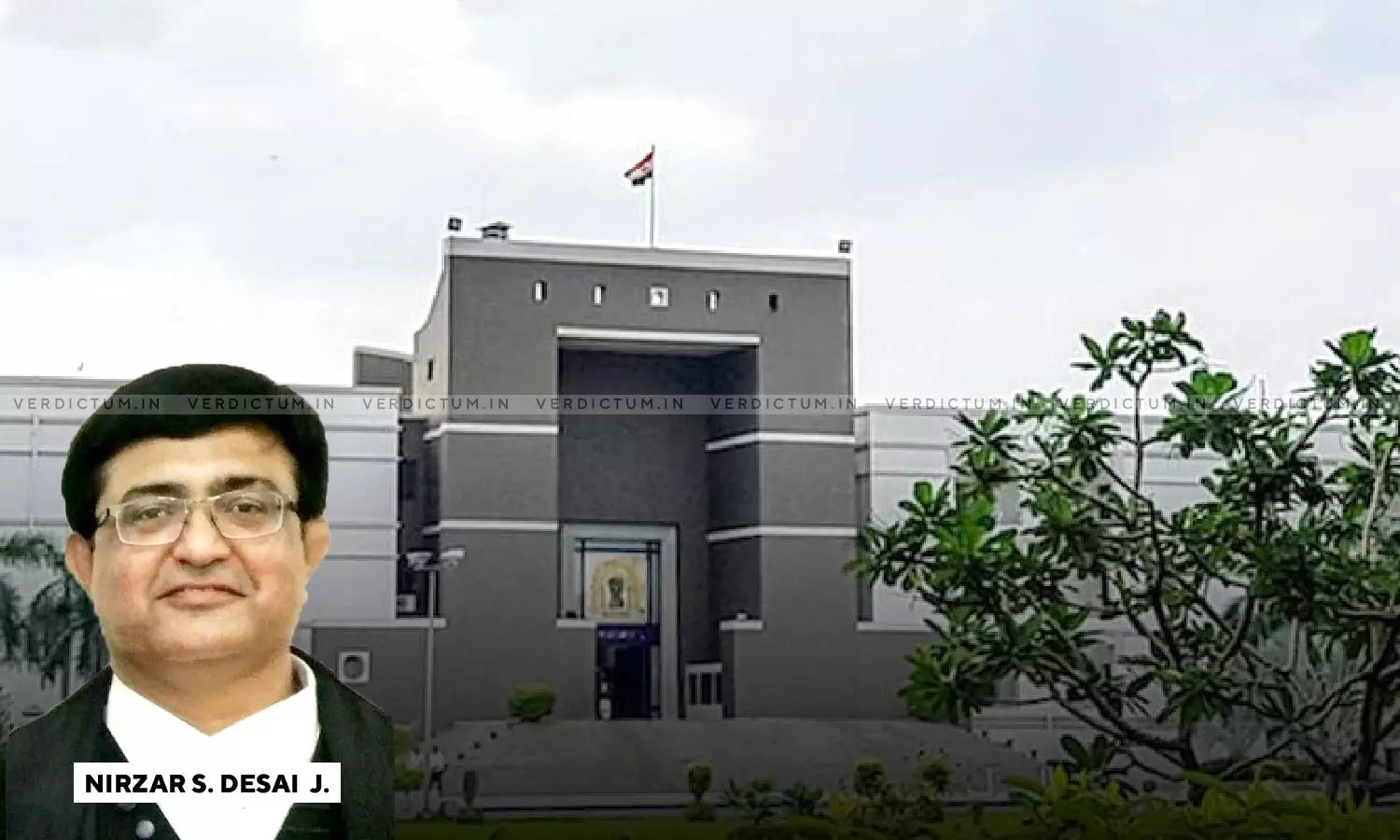
Justice Nirzar S. Desai, Gujarat High Court
SARFAESI Act| Priority To Be Given To Claim Of Secured Creditors Over Any Government: Gujarat HC
 |
|The Gujarat High Court has observed that in view of Section-26 SARFAESI Act, the claim of Secured Creditors take priority over claim of any Government.
The Court was considering Petitions with the core issue as to who will have first charge over the property in question i.e. Secured Creditor or the State / Central Government (Crowns debt) on account of non-payment of dues of Sales Tax department.
The single-bench of Justice Nirzar S. Desai observed, ".....that the Secured Creditor will have first charge over the property as against State Government (Crowns Date) and, therefore, decision of the Hon'ble Supreme Court in the case of Kotak Mahindra Bank is in different context and, therefore, the same would not be applicable in the facts of the case."
The Petitioner was represented by Advocate Ajay R. Mehta while the Respondent was represented by Assistant Government Pleader Jay Trivedi.
The Petitioners were successful auction purchasers or their successors who have purchased the property by way of auction from the Bank or are subsequent purchasers from the auction purchaser and essentially, their grievance is about the fact that name in the revenue record are not mutated and are denied.
The Counsel for the Petitioner argued that Banks which are Secured Creditors are having charge over the subject property, their charge over the property would prevail over the Unsecured Creditor i.e. Sales Tax Department (Crown's Debt) and hence, the claim of Secured Creditor would prevail over the claim of Unsecured Creditor. According to the petitioner, in view of Section 26 E of the SARFAESI Act. He contended that the petitioners purchased the property in question by way of public auction as a bonafide purchaser from a Secured Creditor, the refusal of the respondents to mutate the name of the petitioners in the revenue entry in revenue record is contrary to law and hence, illegal.
He submitted that the common law of England or principles of equity and good conscience would not allow Crowns Debt to have priority over the recovery of debts over the mortgagee or pledgee of goods or secured creditors and the proposition of law is followed by the Supreme Court in the case of Bank of Bihar v. State of Bihar, Dena Bank v. Bhikhabhai Prabhudas Parekh & Company, and Punjab National Bank v. Union of India. He further submitted that the Sales Tax Department can always recover their dues from the defaulter through alternative forum and means, if any available, as per law, but the petitioners being bonafide purchasers cannot be permitted to be penalized.
On the other hand, the AGP contended that the petitioners are not entitled for the discretionary relief because whether the Bank has the “first charge” or not cannot be decided in the petition at the instance of the present petitioner i.e. auction purchaser. He further contended that the petitioners cannot maintain the petition especially when, the erstwhile owner namely Minaxi Manishbhai Hansoti has never challenged the attachment order passed by the Sales Tax Department and that the petitioner cannot be said to be to be “auction purchaser” but a “subsequent purchaser”. He also averred that since the present petition is filed after the lapse of 17 years, the petitioners were not entitled for the discretionary reliefs as prayed in the petition on the ground of delay. He submitted that under Section 13(7) of the SARFAESI Act, 2002, it is the statutory duty of the Bank to discharge the dues of the secured creditor and the residue of the money so received be paid to the person/department against whom there is valid outstanding amount.
The Court at the outset observed that it is undisputed fact in each of the petitions that all the petitioners are bonafide purchasers of various properties which were put to auction upon default in repayment of loan committed by their predecessors in title and therefore under the proceedings under the SARFAESI Act, the properties were put to auction pursuant to a charge which was created in favour of the respective Bank and the petitioners having been the successful bidder, had paid the bid amount and purchased the property as successful bidder.
After considering the relevant case laws, the Court observed, "The above referred judgments takes a categorical view that the charge of the Secured Creditor will precede over the charge of an Unsecured Creditor (Crowns Date). In the instant case, the submission of learned AGP Mr. Trivedi that the State and its authorities have rightly rejected the application for mutation of entry of the petitioners in respect of the property in question cannot be accepted. Further, as far as the submission of delay is concerned, the same also cannot be accepted for the reason that the petitioners are the bonafide purchasers of the property in question by way of auction or from successful auction purchaser and they have invested huge amount in the property, they have acquired the title of the property by way of Sale Certificate, they are the holder of the title in respect of property in question as on today. Reflection of their names in the revenue record by way of mutation entry is merely a consequential action based upon their title over the property in question. When their title is unquestionable, as the respective Banks have issued Sales Certificate in favour of petitioners, the petitions cannot be thrown away on the ground of alleged delay."
The Petitions were accordingly allowed.
Cause Title: Madhaviben Jitendrabhai Rupareliya v. State Of Gujarat (2024:GUJHC:1031)
Click here to read/ download Judgement: